Italy election: a guide to who's who
Who are the main players in Italy's election?
Italy's general election will be held on Sunday 25 September with a right-wing alliance widely predicted to beat the left in a landslide win.
Leading in the latest opinion polls is the far-right Fratelli d'Italia (FdI) party of Giorgia Meloni who is poised to become Italy's first woman prime minister after the general election on 25 September.
The FdI is the only party in the election race that did not form part of the national unity government of outgoing premier Mario Draghi who resigned in July after three coalition parties withdrew their support.
Meloni's nationalist-conservative party dominates an alliance comprising the right-wing Lega of Matteo Salvini and the centre-right Forza Italia of Silvio Berlusconi.
Opinion polls give the FdI about 25 per cent of the vote, suggesting that with the combined votes of the Lega and Forza Italia - about 12 per cent and 8 per cent respectively - the rightist bloc stands to win a solid majority in both houses of parliament.
Giorgia Meloni (45) grew up in Rome's Garbatella neighbourhood and formed FdI in 2012. She is known for her straight-talking style although she tends to tone down her fiery rhetoric when addressing international media.
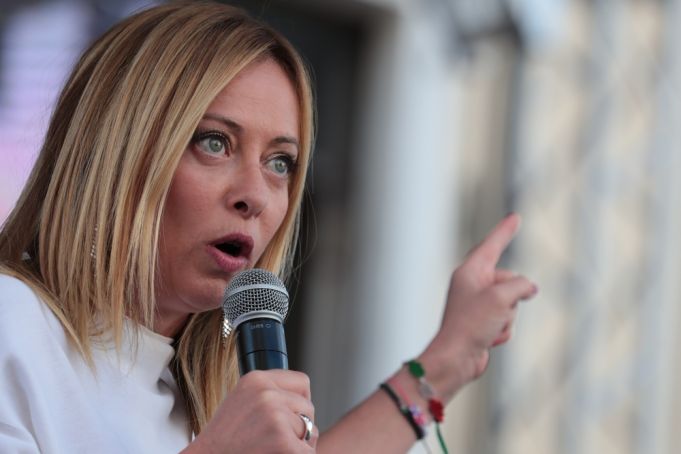
Meloni maintains a pro-NATO stance and supports sanctions against Russia over its invasion of Ukraine however during a recent rally she pledged that if she wins "the fun will be over" for the EU.
She also generated news headlines by proposing a naval blockade to stop migration to Italy, and declaring her intent to respond to the ongoing energy crisis by amending Italy's €200 billion recovery plan.
In the days leading up to the election, foreign media publications rushed to highlight the alleged danger represented by Meloni, with Germany's Stern magazine calling her "the most dangerous woman in Europe".
In recent days she backed Hungarian leader Viktor Orbán, a close ally, after the European parliament voted to delcare that Hungary had become "a hybrid regime of electoral autocracy".
An exponent of nationalism and traditional family values, Meloni's election battle cry is "God, fatherland, family". She has also railed against the "LGBT lobby", "Isalmic violence" and "gender ideology".
In a recently resurfaced video clip Meloni, then a 19-year-old youth activist with the neo-fascist Movimento Sociale Italiano, praised dictator Benito Mussolini as "a good politician".
Days before the election, Meloni's party suspended one of its candidates over his online praise of Nazi dictator Adolf Hitler, while another FdI member, Romano La Russa, made headlines for his stiff-armed "fascist" salute at a funeral in Milan.
Meloni's allies in the rightist bloc - Lega and Forza Italia - were both in Draghi's national unity government, unlike the FdI which remained in opposition and saw its popularity soar over the last year.
Lega leader Matteo Salvini (49) served as deputy premier and interior minister from June 2018 to September 2019, during the first government of former prime minister Giuseppe Conte.
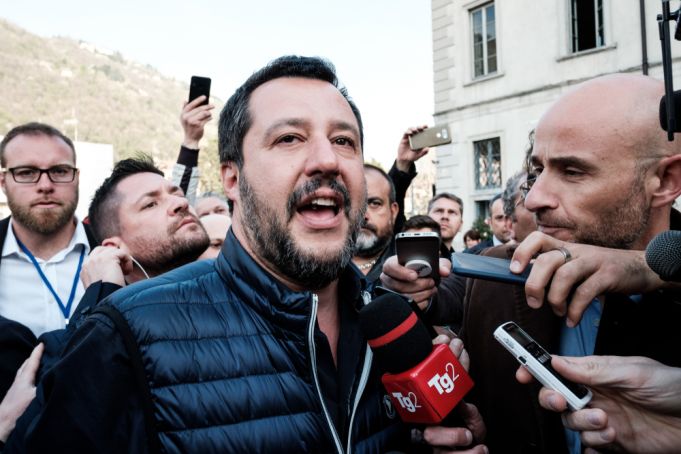
Nicknamed il Capitano, or the Captain, by his supporters, Salvini is known for his hardline stance against illegal immigration and if elected has pledged to introduce tougher measures against migrants seeking refuge in Italy.
In 1990, Salvini joined the northern-based Lega Nord, a regionalist and separatist movement which he would go on to lead in 2013.
Ahead of the 2018 elections the party was rebranded as the Lega, dropping the "Nord", in a move that saw it make inroads outside its traditional powerbase in the north.
In addition to immigration, Salvini has been a vocal critic of the EU and takes a tough view on illegal camps inhabited by the Roma people.
Before Russia's invasion of Ukraine, Salvini was an outspoken admirer of Vladimir Putin, famously posing in Moscow's Red Square wearing a t-shirt emblazoned with a picture of the Russian president.
Salvini has attracted criticism over his calls to end sanctions on Russia that are leaving Italian citizens "on their knees" due to higher energy bills. He has also repeated calls to bring back compulsory military service.
Joining the parties of Salvini and Meloni in the rightist alliance is the conservative Forza Italia, led by Silvio Berlusconi (85), a man who needs little introduction.
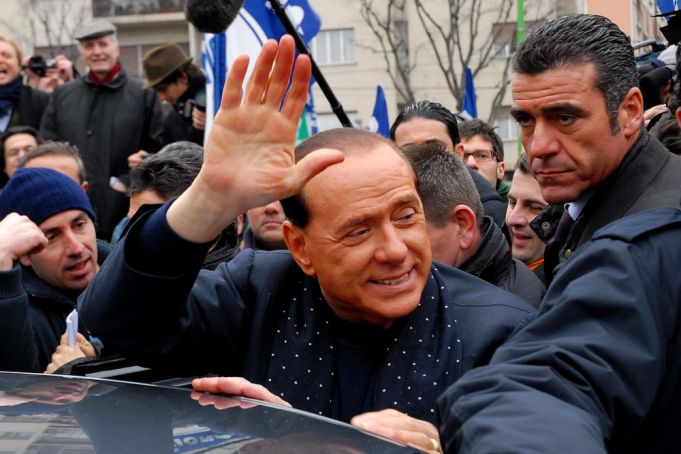
Despite his advanced age, the billionaire media tycoon remains a colourful character.
Dogged by scandals over the years, from tax fraud conviction to the infamous "bunga bunga" sex parties, Berlusconi is one of the political world's great survivors.
However his prowess is not what it once was and his centre-right party is considered the weakest in the three-way "centrodestra" alliance.
Forza Italia is pro-EU and pro-US, and is calling for a flat tax of 23 per cent for families and businesses. Before Moscow's invasion of Ukraine, Berlusconi had long boasted of his cosy relations with Putin.
Days before the election Berlusconi caused an outcry by defending his old friend Putin, during an interview on Italian television, claiming that the Russian leader was "pushed" into invading Ukraine to "replace the Zelensky government with decent people".
This summer the veteran FI leader joined TikTok in an attempt to woo younger voters and his election posters feature pictures of a much younger Berlusconi, known as il Cavaliere (the Knight).
He remains prone to gaffes, recently asking a male TV presenter if he got the phone number of a "beautiful girl" as well as boasting that he is "more handsome" than Enrico Letta (56), leader of the centre-left Partito Democratico (PD).
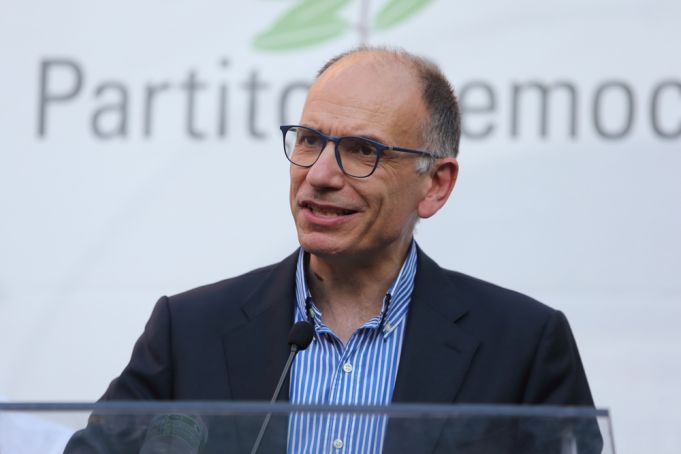
The PD is currently in second place, according to the final opinion polls before a pre-election blackout, on about 21 per cent of the vote.
Letta is an academic who served as Italy's prime minister in a coalition government with Berlusconi, from 2013 to 2014, before being forced to resign by party rival Matteo Renzi.
Leader of the PD since March 2021, Letta has struggled during the election campaign to build up a united front of left and centrist parties to challenge the seemingly unstoppable march of the right.
The PD election manifesto focuses on increasing welfare payments, including a proposed payment of €10,000 when teenagers turn 18, and civil rights, including a plan to introduce gay marriage to replace civil unions.
The PD wants to expand renewable energies and has pledged to make it easier for children of immigrants to obtain Italian citizenship. Letta's party also said it would pass a law raising penalties for violence or discrimination against the LGBTQ community.
Promising that the PD would keep Italy at the heart of the EU, Letta has warned of the threat that Italy’s right-wing nationalistic parties pose to European democracy.
Letta's hopes of a strong centre-left alliance were dealt a blow when the leader of the small centrist Azione party Carlo Calenda (49) parted ways with the PD in August, just days after joining forces.
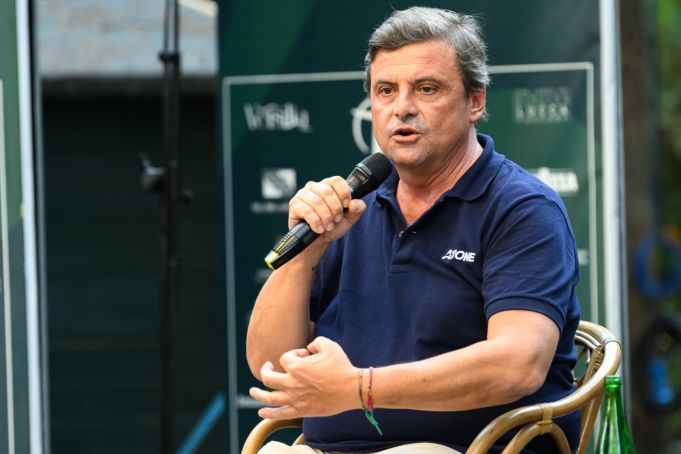
Calenda said the split was over a new electoral pact between the PD and the small left-wing parties Sinistra Italiana and Europa Verde which voted regularly against Draghi's national unity government.
Calenda has united with former premier Matteo Renzi (47), leader of another small centrist party Italia Viva, to form a liberal, pro-European alliance which presents itself as a terzo polo, or third pole, in the political centre.
The terzo polo, which is on 5.5 per cent according to the latest opionion polls on 9 September, is committed to continuing the pro-EU, reformist agenda of Draghi who both leaders admire greatly.
Calenda, a former industry minister, described the Azione-Italia Viva alliance as a "serious and pragmatic alternative to the 'bi-populism' of right and left, which has devastated this country and ditched Draghi".
The 'third pole' hopes to grab votes from the centre-right Forza Italia, bolstered by the defection of two former FI ministers - Mara Carfagna and Mariastella Gelmini - who joined Azione out of anger over the role of Berlusconi's party in bringing down the Draghi government.
The two-party terzo polo is running independently, as is the populist MoVimento 5 Stelle (M5S) party led by former premier Giuseppe Conte (58), on 13 to 14 per cent in the final opinion polls.
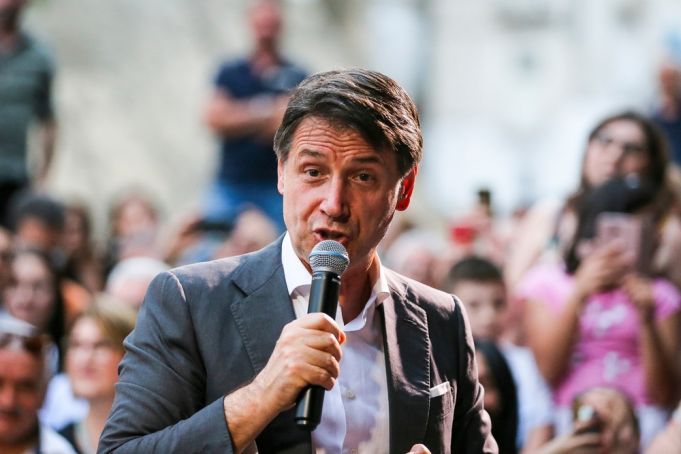
This is far short of the 32 per cent the M5S obtained in the 2018 elections when the then anti-establishment movement formed a government with the right-wing Lega.
At the time the M5S was led by Luigi Di Maio who, along with Salvini, served as deputy premier under the premiership of Conte. Di Maio stood down from the M5S leadership in January 2020.
The flagship policy of the M5S is a contentious welfare benefit payment for the poorest in society, known as reddito di cittadinanza, or citizen's income, which was introduced in 2019.
When Conte's first administration fell in August 2019, brought down by Salvini, the M5S remained in power in a second Conte executive before it collapsed in February 2021, leading to the formation of Draghi's national unity government.
Since Conte became leader of the M5S in August 2021 he has taken the party further to the left.
He suffered a major blow in June when Italy's foreign minister and former M5S leader Luigi Di Maio left the party, to form a new centrist group called Impegno Civico, over Conte's objection to sending arms to Ukraine.
The M5S shares similar social policies to the PD including wanting to bring in a €9 minimum hourly wage and make it easier for the children of immigrants to get citizenship.
On the environment front, the M5S opposes waste-to-energy plants and is in favour of renewable energy. Conte has vowed to defend the reddito di cittadinanza scheme which the right want to scrap.
Italy's general election will be held on Sunday 25 September, with polling booths open around the country from 07.00 to 23.00.
As a result of the 2020 constitutional referendum, the size of Italy's parliament will be reduced to 400 members of the chamber of deputies and 200 elected members of the senate, down from 630 and 315 respectively.
For full details about voting see Italy's interior ministry website.
Cover picture Giorgia Meloni. Photo credit: MikeDotta / Shutterstock.com.





















